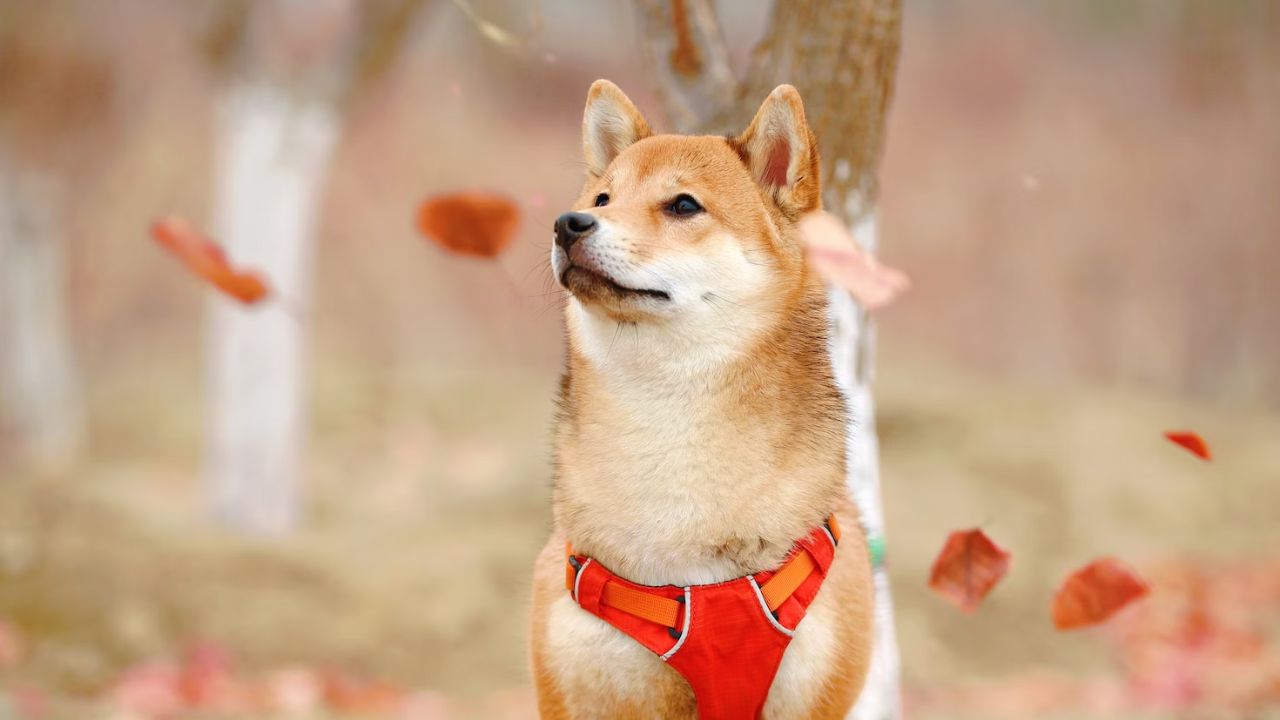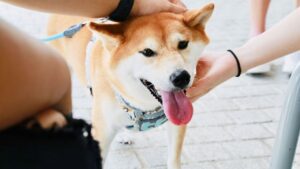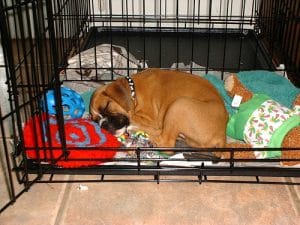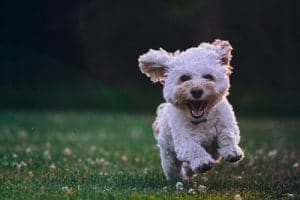Originating from the Land of the Rising Sun, Shiba Inu has captured the hearts of about-to-be pet parents in the UK.
For those unaware, the Shiba Inu is more than just the celebrated star of viral memes across the Internet. They’re affectionate and loyal companions in many households among Japanese people.
General Trivia: “Inu” in Japanese literally translates to dog, while “Shiba” means small. A Shiba Inu is generally smaller than most hunting breeds, hence the name.
Shiba Inu is a popular dog breed among active families who can provide training socialisation that these dogs thrive on. They’re characteristically independent, high-energy and great with children.
However, there’s more to purchasing a dog than just their social skills. Like every other breed, Shiba Inu ownership comes with its own financial and health considerations.
That being said if you can take on the initially challenging task of raising a hunting breed like Shiba Inu – you’ll have a life companion. Just ensure you can match their energy, and you’ll have a lot of fun.
| Attribute | Detail |
| Breed Type | Companion |
| Size | 30 – 45 cm |
| Weight | 6 – 12 kg |
| Lifespan | 12 – 15 years |
| Coat | Very thick, double-coat |
| Grooming | Once a week |
| Exercise | 1 hour a day |
| Temperament | Loyal, alert, independent, lively |
Costs, Expenses and Legalities of Shiba Inu Ownership
Before I go deep into the nitty gritty, here’s a table detailing the potential costs involved in raising a Shiba Inu in your UK household:
| Expense Category | Estimated Cost |
| Purchase Price | £1,400 – £2,500+ |
| Initial Medical Expenses (Vaccinations, Neutering/Spaying) | £200 – £300 |
| Annual Medical Expenses (Regular Check-ups, Medications) | £100 – £200 |
| Training | £50 – £250 |
| Food | £300 – £500 per year |
| Grooming | £150 – £300 per year |
| Miscellaneous (Toys, bed, etc.) | £100 – £200 per year |
| Insurance | £200 – £400 per year |
| Total First-Year Cost | £2,500 – £4,450+ |
| Total Annual Cost | £750 – £1,600+ thereafter |
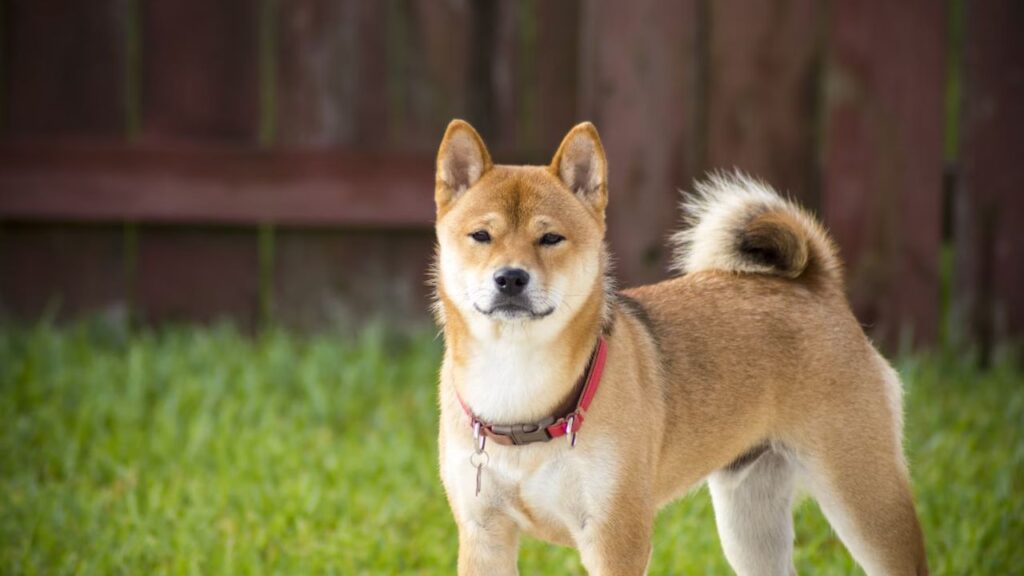
1. How much do Shiba Inu puppies cost?
On average, Shiba Inu costs around £1,400 to £2,500+ in the UK. And this doesn’t include other initial and recurring expenses totalling an estimated £2,500 to £4,450 in the first year. This high cost is partly due to the small litter that the Shiba breed typically produces, resulting in longer waiting lists.
Here’s a breakdown of the purchase costs:
| Shiba Inu (Age, Gender) | Average Cost |
| Puppy (male) | £1,400 – £2,500 |
| Puppy (female) | £1,500 – £2,700 |
| Adult (male) | £1,000 – £2,000 |
| Adult (female) | £1,200 – £2,200 |
| With Genetic Preferences | £2,000 – £3,500 |
2. How much does Shiba Inu insurance cost in the UK?
In the UK, the average insurance cost for a Shiba Inu falls between £200 and £400 per year. Pet insurance ensures that unexpected health issues or accidents will not lead to a sudden financial burden. I highly recommend you get pet insurance to ensure your Shiba Inu’s well-being without compromising on necessary medical care.
3. Can you own a Shiba Inu in the UK?
Surprisingly, I get this question a lot from potential dogowners.
You can legally own a Shiba Inu in the UK. However, potential Shiba Inu owners must be prepared for the responsibilities and costs that come with it, as outlined above.
What to know about Shiba Inu beforehand?
Although there are multiple aspects of owning a dog, I believe there are 6 important factors you should understand about the breed before considering it.
1. Life Expectancy: How many years does a Shiba Inu live?
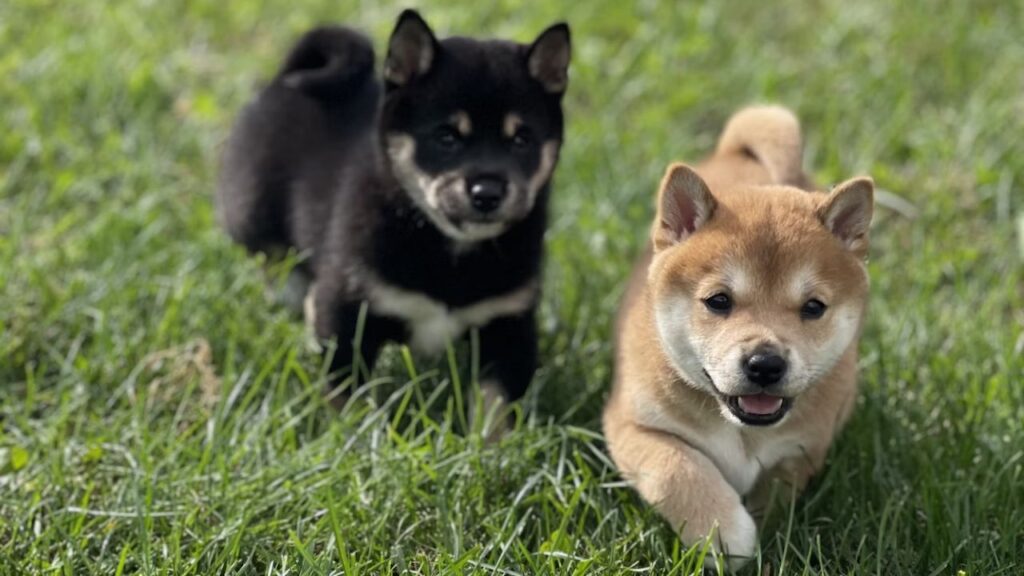
Generally, Shiba Inus live for 12 to 15 years, which is a considerable amount of time among dog breeds. Proper care, a healthy diet, regular exercise, and regular vet check-ups can contribute to your Shiba Inu leading a long, healthy, and happy life.
2. Gender Differences
| Aspect | Male | Shiba Inu |
| Size | Slightly larger | Smaller |
| Temperament | More territorial | Generally more calm and reserved |
| Training Response | May be stubborn | Typically easier to train |
Male and female Shiba Inus differ in size, temperament, and training response.
Males are generally larger and can be more territorial, which might make them slightly more stubborn during training sessions. In comparison, females are often calmer, smaller, and can be easier to train.
3. Physical Characteristics
Speaking of sizes and appearances, how big does a Shiba Inu actually get?
Shiba Inus are generally a small to medium breed, with males typically weighing around 8–11 kg and females around 6–9 kg. They stand about 35–43 cm tall at the shoulder.
As for the breed variants, you can divide them into three aspects.
Coat Colors:
- Red, black and tan, or sesame.
- A dense double coat that sheds heavily twice a year.
Eye Shape:
- Have a distinct, small, and triangular eye shape.
Facial Expression:
- The famous ‘Shiba smile’ which reflects their spirited personality.
4. Character Traits
Shiba Inus are known for their independence, intelligence, and loyalty.
Independence: From what I know, their “independent” nature is a hassle initially, but it gets better with time and training. It’s a double-edged sword that showcases their self-sufficiency but also their value of personal space and autonomy.
Thus, I recommend buying a Shiba Inu if you consider yourself a patient pet parent. You must walk the line between respecting their independence and setting firm boundaries.
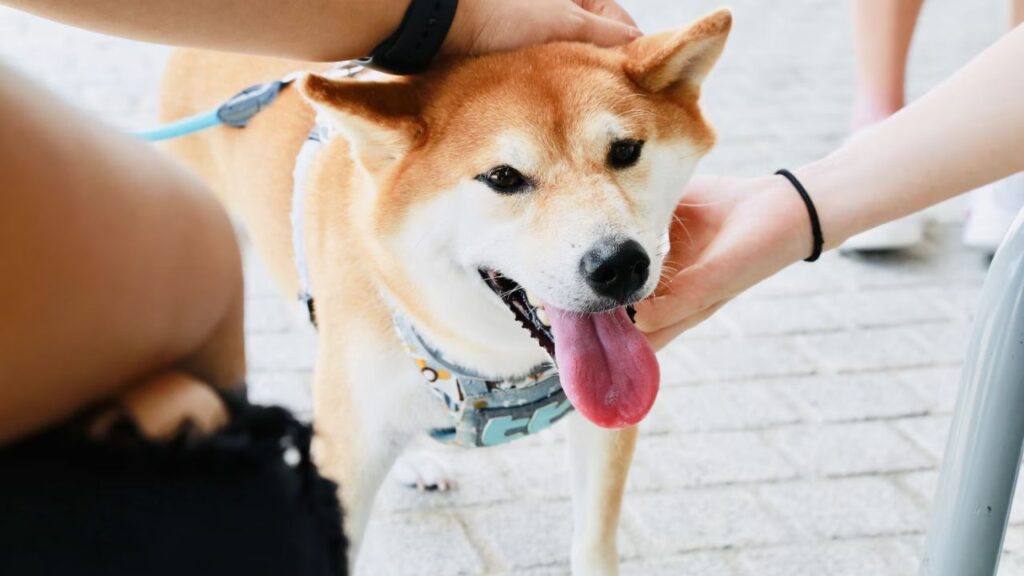
Intelligence: Here comes the good stuff: Shiba Inus are incredibly intelligent. Their sharp minds make them quick learners and highly observant dogs. However, they require more mental stimulation than most dogs to avoid boredom.
Loyalty: Their deep loyalty towards their families is one of the primary reasons for Shiba Inu’s popularity in Japan. Their loyal nature also makes them excellent watchdogs who will stop at nothing to protect the family they cherish.
Affection: Despite their independent and bold nature, Shiba Inus are quite affectionate. They’ll shower you and your family with much love and warmth, especially the children.
5. Training
One of the most endearing traits of Shiba also makes them hard to train. Their nature of favouring independence is often misinterpreted as stubbornness by inexperienced owners.
Generally speaking, Shiba Inus aren’t hard to train when using positive reinforcement, consistency, and patience. They’re independent and loyal dogs who are wary of strangers. So early socialisation with the family members is crucial and helps with the training.
Bad Habits to Watch Out For:
- Shiba Inus can be quite vocal when unaddressed, leading to excessive barking.
- Their hunting instincts WILL trigger a chasing habit, especially when smaller animals and birds are around.
- Shiba Inus tend to dig, which can be directed positively with dedicated digging areas.
- Shiba often shows aggression towards other dogs due to their hunting lineage. However, proper socialisation as a puppy can mitigate this issue.
6. Health & Common Issues
Shiba Inu breed is prone to health issues like hip dysplasia, patellar luxation, allergies (Atopy), cataracts, epilepsy, and hypothyroidism. Early health screening and regular vet check-ups can help in early diagnosis and treatment, ensuring a healthier, more comfortable life for your doggo.
- Atopy (Allergic Dermatitis): A skin condition that causes intense itching and discomfort for the Shiba Inu.
- Hip Dysplasia: A common genetic condition among dogs that affects the hip joint. Ensure your dog always maintains a healthy weight to help manage this condition.
- Cataracts: Shiba Inus may develop cataracts, leading to cloudiness in the eye lens and potential vision loss. Early diagnosis and surgical intervention are effective in preserving their vision.
- Patellar Luxation: This condition occurs when the kneecap dislocates, causing discomfort and mobility issues.
- Hypothyroidism: It’s a disorder of the thyroid gland which can lead to various symptoms, including weight gain, lethargy, and coat issues.
- Epilepsy and Seizures: Regular veterinary assessments and medications can help manage seizure disorders, ensuring a comfortable life for Shiba Inu.
How to take care of Shiba Inu?
Caring for your Shiba Inu is an incredibly rewarding experience due to everything I have mentioned so far. Shiba Inu is an energetic and loyal breed – almost like a best friend ready to have fun with you anytime.
1. Exercise & Stimulation
Generally, your Shiba Inu requires 40-60 minutes of exercise daily. The routine could combine walks, playtime, and other activities. As for the off-leash playtime, make sure to do it in an enclosed space, as this hunting breed makes them quick runners.
Don’t remove the leash outside the house unless you know your recall training.
Additionally, engage them in mentally stimulating activities and games to keep their minds active and avoid boredom or destructive behaviours. Interactive toys and puzzle feeders are excellent ways to stimulate your Shiba mentally.
2. Grooming and Shedding
Shiba Inus have a thick double coat, so they’re hypoallergenic. However, they shed all year around, so be prepared to deal with that.
But that’s probably the only gripe you’ll have with them. Shiba is a relatively hygienic and self-cleaning breed, often paralleled to a cat. Just make sure you brush their fur thoroughly every week to prevent tangling and matting.
2. Nutrition and Feeding
For puppies, consider feeding three to four small meals daily. Adult Shibas typically require two meals daily, while seniors do well with two smaller-portioned meals.
4. Sleep
Adult Shiba Inus typically require around 10-14 hours of sleep daily, while puppies and older dogs may need more, closer to 18-20 hours daily, for mental and physical development.
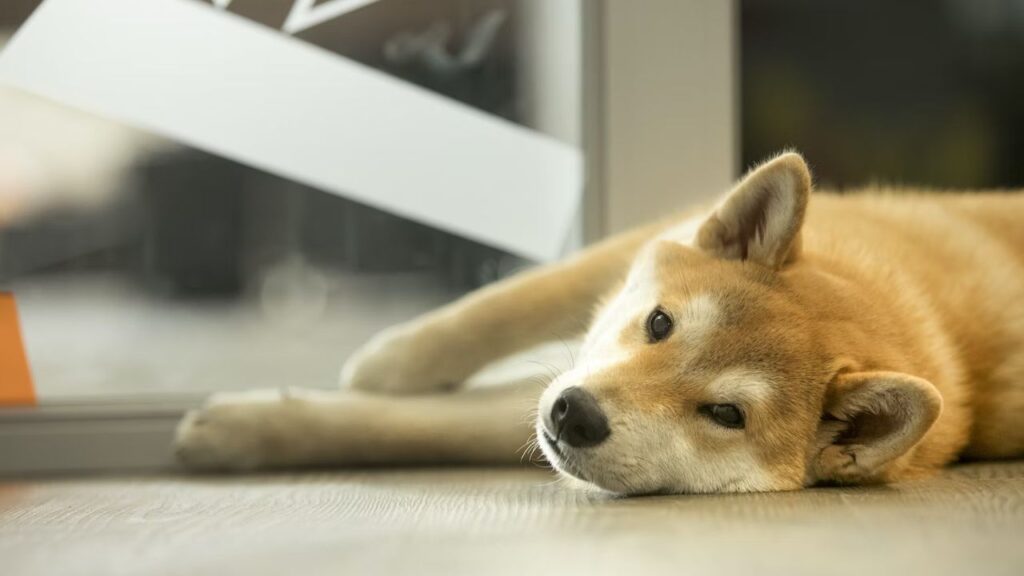
While they’re usually found sleeping or lounging around, do not mistake them for a lethargic breed. A Shiba will outrun and outsmart you at the first chance they get.
Are Shiba Inu good pets?
Shiba Inus are great pets for the right owner. The breed is well-known for its spirited personality, independence, and deep loyalty. However, their territorial nature and high energy can present challenges for first-time dog owners or families with young children.
Despite their challenges, for experienced dog owners who understand the importance of firm boundaries and consistent training, Shiba Inus can be a wonderfully loyal and affectionate companion.
1. Is Shiba Inu a good first dog?
Shiba Inu isn’t an ideal first-time dog due to their independent and somewhat stubborn nature. They require an owner who is ready and able to establish and enforce rules and boundaries.
Families with young children should also avoid a Shiba as their nature will clash with the unpredictability of young kids.
2. Does Shiba Inu have a Good Temperament?
Shiba Inus have a good temperament, but it’s accompanied by a strong, independent streak. Setting early limits helps ensure a harmonious relationship, allowing their positive traits to shine while effectively managing their strong prey drive and territorial behaviour.
3. Are Shiba Inus Good with Kids?
Shiba Inus can coexist peacefully with older children who understand the importance of respecting a dog’s boundaries. However, their independent and sometimes impatient nature can make it a challenge for them to interact with younger kids who may inadvertently invade their space or test their patience.
